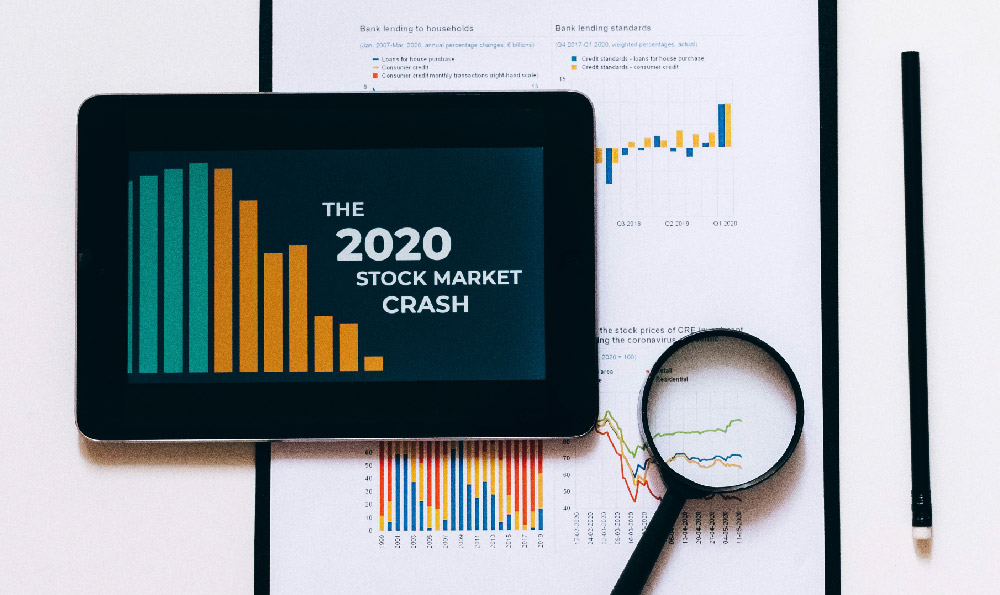Okay, let's delve into the world of online investing, particularly focusing on the potential and pitfalls of cryptocurrency.
The allure of online investing, especially with cryptocurrencies, stems from its accessibility and perceived high-return potential. The promise of significant gains in a short period attracts many. However, it’s crucial to understand that this potential is inextricably linked to substantial risk. Before committing any capital, a thorough self-assessment is paramount. Ask yourself: What are my financial goals? What is my risk tolerance? How much time am I willing to dedicate to researching and managing my investments? Answering these questions will lay the foundation for a sound investment strategy.
Cryptocurrencies, while offering exciting opportunities, are inherently volatile. Unlike traditional assets like stocks or bonds which are often tied to the performance of companies or government stability, cryptocurrency values are largely driven by speculation, market sentiment, technological advancements, and regulatory news. This makes predicting price movements extremely difficult, even for seasoned professionals. Therefore, diversifying your portfolio is not just a suggestion, it's a necessity. Don't put all your eggs in one basket, especially if that basket is a relatively new and unpredictable asset class like cryptocurrency. Consider allocating a portion of your investment capital to more stable assets such as stocks, bonds, or even real estate. The percentage allocated to cryptocurrency should be commensurate with your risk tolerance and financial goals.

Once you've determined your risk tolerance and diversification strategy, the next step is to conduct meticulous research. Don't rely solely on the advice of influencers or online forums. Instead, focus on understanding the underlying technology, the team behind the project, the tokenomics (the economics of the cryptocurrency), and the overall market trends. Whitepapers, official websites, and reputable news sources are valuable resources for gathering information. Avoid hype-driven investments and focus on projects with strong fundamentals and a clear use case.
Choosing the right platform for buying and selling cryptocurrencies is also critical. Reputable exchanges prioritize security and offer a wide range of features, including trading tools, educational resources, and customer support. Look for platforms with robust security measures, such as two-factor authentication and cold storage for the majority of their assets. Be wary of exchanges with limited liquidity, high fees, or a history of security breaches. Compare fees and features across different exchanges before making a decision.
Beyond simply buying and holding cryptocurrencies, there are other ways to potentially generate returns. Staking, for example, involves holding certain cryptocurrencies in a wallet to support the network and earn rewards. Lending allows you to lend your cryptocurrencies to borrowers and earn interest. However, both staking and lending carry their own risks. Staking can involve lock-up periods, during which you cannot access your funds, and lending can expose you to the risk of default. Thoroughly research these options before participating.
One crucial aspect often overlooked is risk management. Setting stop-loss orders is a vital tool for limiting potential losses. A stop-loss order automatically sells your cryptocurrency when it reaches a predetermined price, preventing you from losing more than you're willing to risk. Similarly, take-profit orders allow you to automatically sell your cryptocurrency when it reaches a predetermined profit target. Regularly review and adjust your stop-loss and take-profit orders as market conditions change.
Furthermore, be extremely cautious of scams and fraudulent schemes. The cryptocurrency space is rife with scams, including pump-and-dump schemes, phishing attacks, and fake investment opportunities. Be skeptical of promises of guaranteed returns or unrealistic profits. Never share your private keys or seed phrases with anyone, and always double-check the website address before entering your credentials. If something sounds too good to be true, it probably is.
Tax implications are another important consideration. Cryptocurrency gains are typically subject to capital gains taxes, and it's crucial to keep accurate records of your transactions for tax reporting purposes. Consult with a tax professional to understand the specific tax implications in your jurisdiction.
Finally, remember that investing in cryptocurrencies is a long-term game. Don't expect to get rich overnight. Market fluctuations are inevitable, and there will be periods of both gains and losses. Stay disciplined, stick to your investment strategy, and avoid making emotional decisions based on short-term market movements. Continuous learning and adaptation are key to success in the ever-evolving world of cryptocurrency investing. Stay informed about market trends, regulatory developments, and technological advancements, and be prepared to adjust your strategy as needed. Investing wisely requires patience, discipline, and a commitment to ongoing education. It's a marathon, not a sprint. Profitability in the online investing space, especially with crypto, is achievable, but it demands a strategic, informed, and risk-aware approach.












